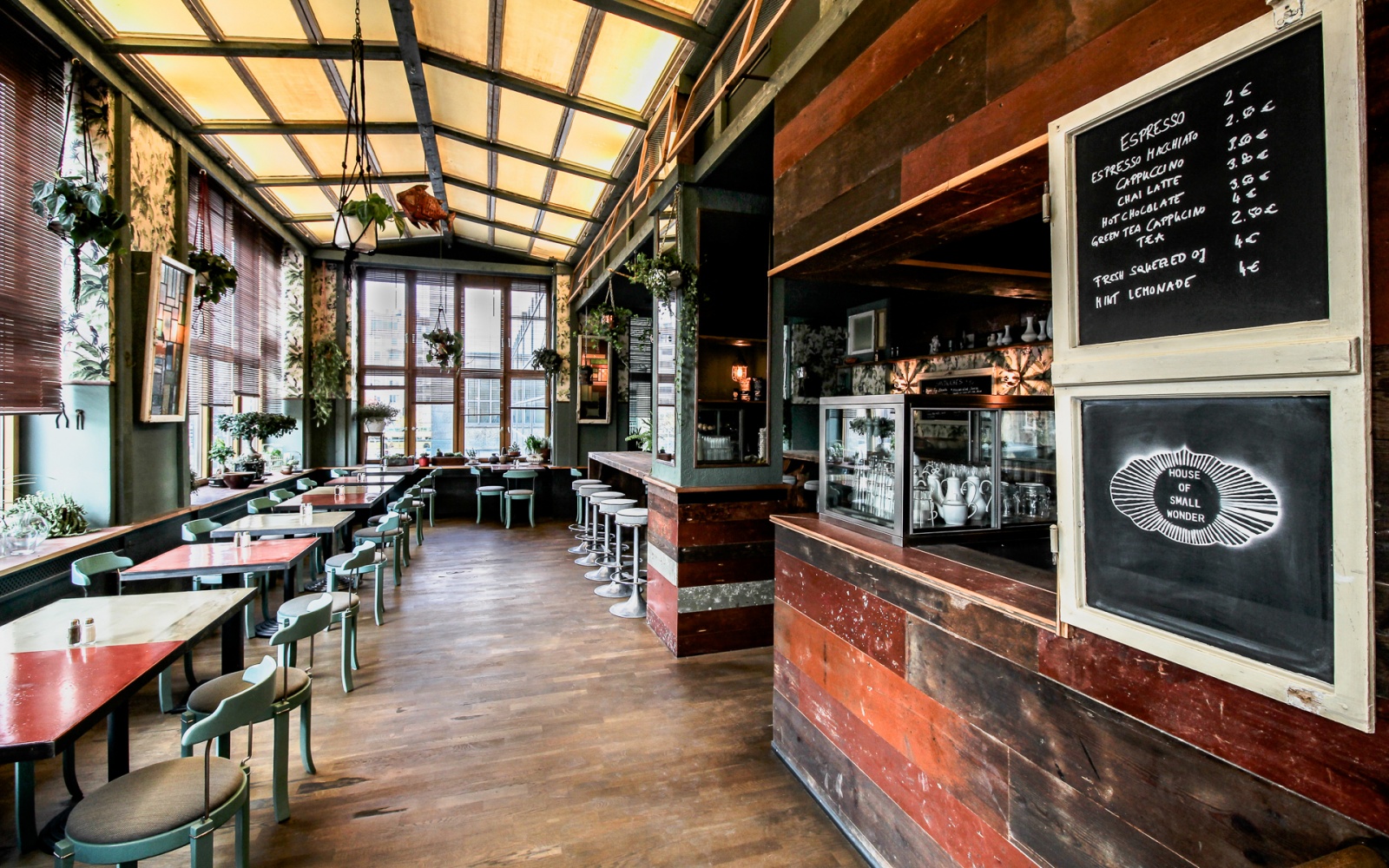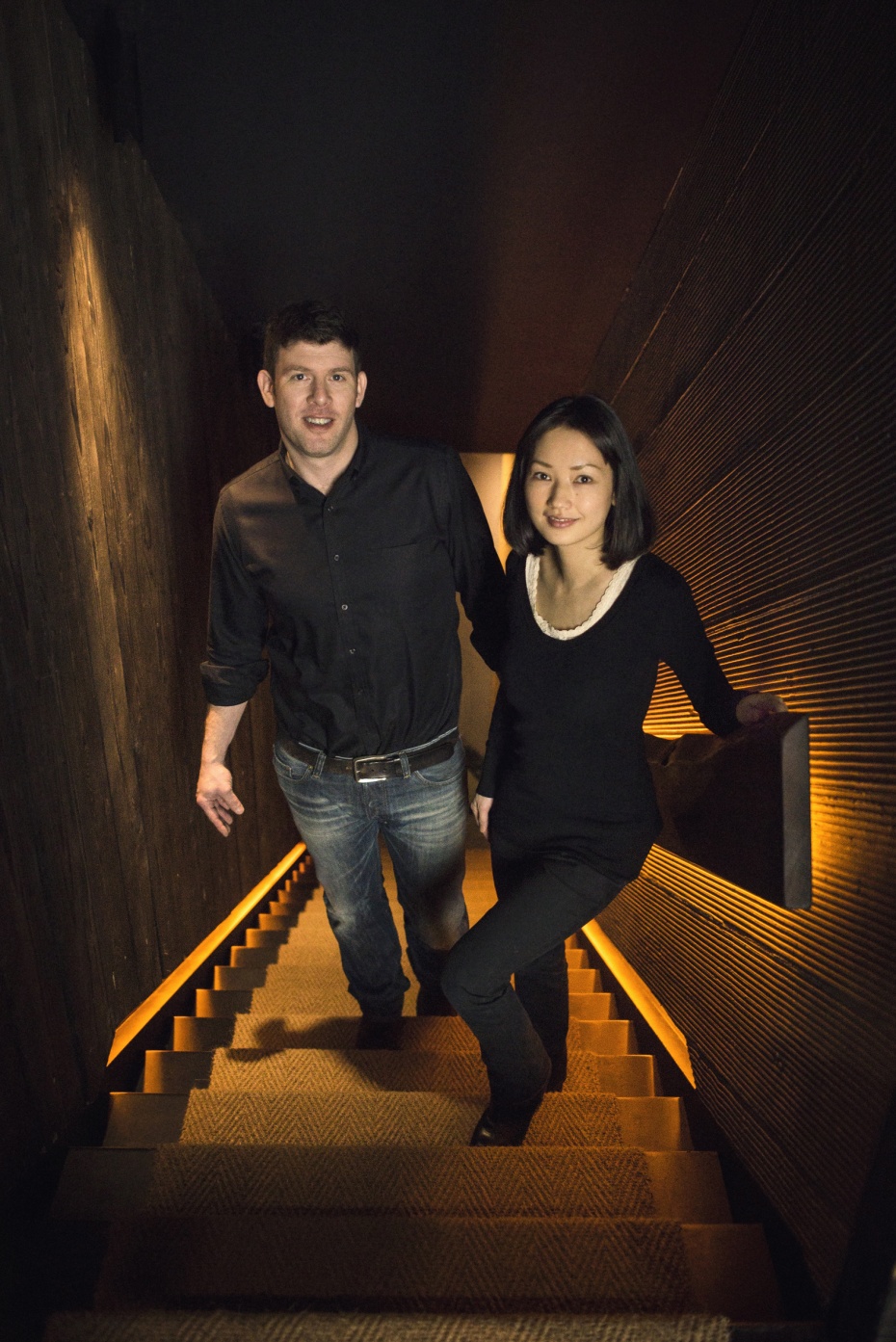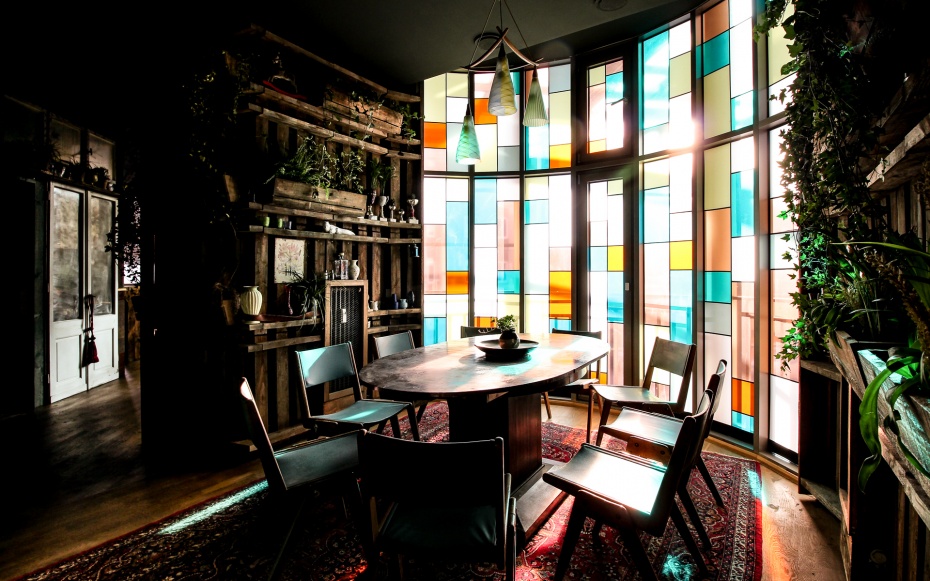
Berlin’s diversity, affordability, and artist-friendly vibe have given rise to hipster culture there, earning it the nickname 'the new Williamsburg.' We talked to Shaul Margulies and Motoko Watanbe, restaurateurs who relocated from Brooklyn full-time after falling in love with the city and its creative energy.
Williamburg, Brooklyn, was still raw and populated by artists when Shaul Margulies opened up his first restaurant there. “The place was called Anytime, and was open 24 hours,” he recalls. “It specialized in delivering food, cigs and beer to stoned hipsters. Six months after opening, we were feeding about a thousand people a day.” A year later the Isreali-born entrepreneur met the woman that would become his wife: Motoko Watanbe, an elegant medical researcher from Tokyo.
While Anytime was turning into a successful monster (“At one point we had 120 employees on the payroll, and several of them would either quit, not show up or be fired every day,” Margulies says), Margulies and Watanbe were traveling (and eating) extensively in Japan. “For years, we would come back and crave not only the Japanese food, but also the intimate atmosphere, the jazz, and the unadulterated authentic flavors,” he says. “We decided it was time for us to upgrade from fast food for delivery to higher-end fare that we craved eating.”

In 2006 they opened Zenkichi, an intimate, hidden space on North 6th Street near Wythe that served the izakaya-inspired small plates they missed from their travels in Japan. “Our feeling was, whatever works for 120 million Japanese will work for 50 people a night in New York,” Margulies says. “We were right.”
At the same time, the landscape of Williamsburg began to change. The same people who could afford to pay for the $80 chef’s menu were actually moving into the neighborhood. “The area was just starting to complete some of its first luxury condo buildings,” he says. His brother had moved to Berlin a year before, and so Margulies and Watanbe began to travel there, too.
“We would have coffee at places like Milch Halle and Buscaglione, where I would get a sandwich with one slice of cheese and one slice of ham. The quality of each ingredient made the quantity irrelevant,” he says. “We decided we wanted to open a place in New York where a sandwich does not weigh one pound, contained top-notch ingredients, and was affordable. A place where, for ten bucks one could get something savory, something sweet, and a drink.” In 2010, House of Small Wonder, also on North 6th Street, was born.

Ironically, the more successful their restaurants became, the more disenchanted they became with New York. “We didn't love what Williamsburg turned into,” Margulies says. “At the same time, we fell in love with Berlin. The combination of diversity, low rents, and growth make a perfect storm for young people from all over the world looking to explore. It was the energy that NYC once had and wanted to hold on to, but couldn't.”
Last year the couple, along with their two small children, moved to Germany full time. In the beginning of this year, they opened House of Small Wonder, and a few months later, Zenkichi, a warren of wooden booths two stories below. Their timing, as usual, is perfect. Berlin’s food scene, like Brooklyn’s a decade ago, is just starting to evolve into something more sophisticated and global.
Since it opened, House of Small Wonders has been packed every day for lunch; Zenkichi, which is open only for dinner (they offer an excellent 8-course menu for $72) and seats about 80 people, is often booked two weeks in advance for the weekend. (Summertime is a bit slow, as sun-craving Berliners dine outdoors as much as they can).
“Let’s just hope Berlin continues to evolve in a natural and organic manner,” Margulies says. “And at the same time, we really hope it gets much easier here for us to find high-end Japanese ingredients.”
More good reads from T+L:
• World’s Top 50 Hotels
• 27 Destinations Recently Dubbed World Heritage Sites
• Best Places to Travel in 2015